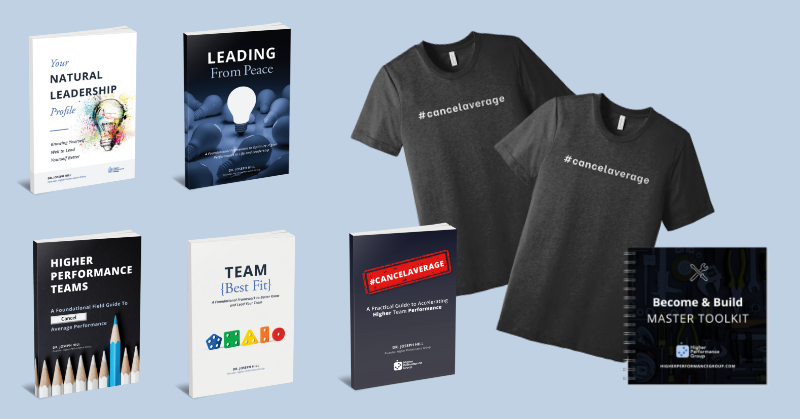By HPG Info
•
April 15, 2025
The Case for the Dynamic Authority Model The most EFFECTIVE campus leadership flows to whoever has the most relevant expertise for the current challenge. Here's a truth that might challenge you: The Command and Control, Servant Leadership, and even Shared Governance models that built our educational institutions are failing us. Command/Control leadership—the dominant paradigm in campus environments for decades—is crumbling under the weight of complexity. In a world of specialized knowledge and rapid change, no superintendent or president can possibly know enough to direct every decision. Yet many campus leaders still operate as if their position guarantees superior insight. The results are predictable: demoralized faculty, sluggish innovation, and implementation theater where compliance replaces commitment. Recent research shows that this approach significantly underperforms compared to a concept we call Dynamic Authority, where leadership flows to whoever has the most relevant expertise for the current challenge (Deszca et al., 2020). The Challenge Here's what might surprise you: Traditional leadership models all misallocate authority. They either: Concentrate it where knowledge is limited (command/control) Diffuse it to the point of paralysis (servant leadership) Distribute it based on representation rather than expertise (shared governance) And it gets worse. Servant Leadership emerged as a well-intentioned correction. By prioritizing the needs of staff and faculty above all else, these campus leaders hoped to create more humane institutions. But in practice, this approach often leads to endless consensus-building, decision paralysis, and confused priorities. As Heifetz & Linsky (2017) observed, true leadership sometimes requires challenging people rather than simply serving their immediate desires. Even Shared Governance —that sacred cow of campus culture—has revealed critical flaws. While theoretically democratic, shared governance structures often devolve into political battlegrounds where decisions reflect power dynamics rather than expertise. Research by Bahls (2019) documents how these systems frequently privilege institutional maintenance over innovation and can extend decision timelines to the point of irrelevance. Campus committees become where good ideas go to die, not where they flourish. Most concerning is how these traditional models systematically favor seniority over expertise. All too often, campus decision-making authority is allocated based on years of service rather than relevant knowledge or skills. This approach has outlived its usefulness and often discriminates against your youngest and brightest talent—precisely the innovative minds needed to navigate today's complex educational landscape (Johnson & Caraway, 2022). Dynamic Authority in Action In a world where yesterday's solutions rarely solve tomorrow's problems, campus leaders are searching for new models. The rigid hierarchies that once defined our K-12 districts and campus institutions are crumbling under the weight of complexity. Here's the truth: expertise no longer follows the organizational chart. Navy SEALs discovered this decades ago. Their response? A system they coined, Dynamic Subordination. This leadership approach flips traditional models on their head. Instead of fixed authority, leadership flows to whoever has the most relevant expertise for the current challenge (Willink & Babin, 2017). The commander becomes the follower. The specialist becomes the leader. Then they switch again. It's leadership as a verb, not a noun. In educational settings, this is what we now call Dynamic Authority . Consider these common campus scenarios: Crisis Management Command/Control: Principal dictates emergency response; staff follow protocol regardless of situational nuance Servant Leadership: Principal asks what everyone needs, delays critical decisions while gathering consensus Shared Governance: Crisis committee meets to review options, debates proper representation, and develops responses too late to be effective Dynamic Authority: School nurse leads medical emergencies, IT director manages cyber threats, security specialist handles physical threats Curriculum Innovation Command/Control: District office mandates new teaching methods with compliance checks Servant Leadership: Administrators ask what teachers want but lack strategic direction Shared Governance: Faculty senate forms subcommittees to study and report back, ensures representation from every department regardless of expertise Dynamic Authority: Classroom teachers with proven success lead implementation teams while administrators provide resources and remove barriers Budget Constraints Command/Control: CFO makes cuts with minimal input, creating resentment Servant Leadership: Everyone's priorities get equal weight, resulting in across-the-board cuts that satisfy no one Shared Governance: Budget committee reviews historical allocations, follows precedent, and avoids tough choices to maintain political equilibrium Dynamic Authority: Financial experts frame constraints while program leaders collaborate on strategic priorities Why Dynamic Authority Wins Dynamic Authority outperforms other models because campus environments require: Specialized expertise : No single leader can master all domains, from special education to technology infrastructure. Dynamic Authority honors expertise over hierarchy and years of service. Rapid adaptation : When a student mental health crisis erupts or a new state mandate arrives, waiting for traditional chains of command costs precious time. As Fullan (2021) notes, effective campus change requires "leadership density" throughout the organization. Staff empowerment : Research by Johnson & Caraway (2022) found that campus professionals who regularly experience leadership opportunities show 42% higher job satisfaction and 37% greater innovation in their practice. Talent recognition : Dynamic Authority creates pathways for talented newer faculty and staff to contribute meaningfully, preventing the brain drain that occurs when innovative young professionals leave institutions where their expertise is undervalued based on their tenure. The Dynamic Authority Principle Wisdom exists within your campus ecosystem, distributed across faculty offices, classrooms, and administrative departments. Dynamic Authority simply acknowledges this reality. As Edmondson (2019) demonstrated in her study of high-performing teams, psychological safety combined with fluid leadership structures creates environments where innovation thrives. Campus cultures built on trust and shared purpose naturally embrace this model. Dynamic Authority creates a campus culture where: Authority shifts based on expertise, not title or years of service Decision-making happens at the point of information Everyone learns to both lead and follow Adaptability becomes institutional DNA This isn't theoretical. Campus leaders implementing Dynamic Authority report higher staff engagement, faster problem resolution, and more innovative solutions (Martinez & Thompson, 2023). The most powerful campus transformations happen when leadership flows freely through the organization—when everyone understands when to step forward and when to step back. What leadership transition will you begin first? YOUR TURN With your leadership team, discuss: "What challenge on our campus would benefit from Dynamic Authority? Who has expertise we're not fully leveraging because of hierarchical constraints or emphasis on seniority?" "Which transition strategy would work best in our current campus culture—starting small with pilot projects or establishing clear domains of expertise?" "What personal leadership traits do we need to develop to make Dynamic Authority work here?" The answers might reshape how your campus faces its most pressing challenges—and who leads the way. REFERENCES: Bahls, S. C. (2019). Shared governance in times of change: A practical guide for universities and colleges. AGB Press. Deszca, G., Ingols, C., & Cawsey, T. F. (2020). Organizational change: An action-oriented toolkit. SAGE Publications. Edmondson, A. C. (2019). The fearless organization: Creating psychological safety in the workplace for learning, innovation, and growth. John Wiley & Sons. Fullan, M. (2021). The right drivers for whole system success. Center for Strategic Education. Heifetz, R. A., & Linsky, M. (2017). Leadership on the line: Staying alive through the dangers of change. Harvard Business Press. Johnson, R., & Caraway, S. (2022). Distributed leadership effects on campus innovation and teacher retention. Educational Administration Quarterly, 58(3), 412-438. Martinez, K., & Thompson, J. (2023). Adaptive leadership structures in higher education. Journal of Campus Leadership, 45(2), 118-134. Raelin, J. A. (2018). Creating leaderful organizations: How to bring out leadership in everyone. Berrett-Koehler Publishers. Willink, J., & Babin, L. (2017). Extreme ownership: How U.S. Navy SEALs lead and win. St. Martin's Press.




